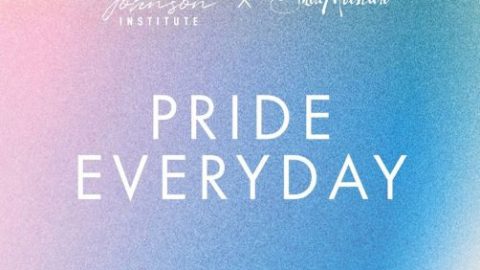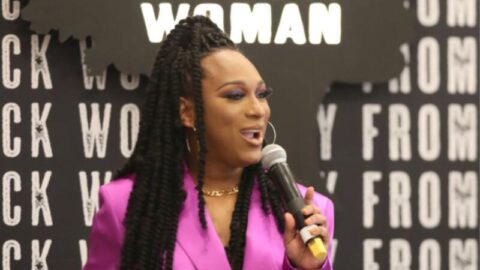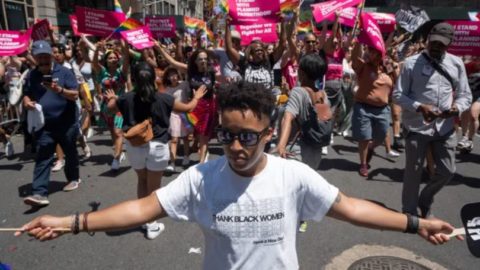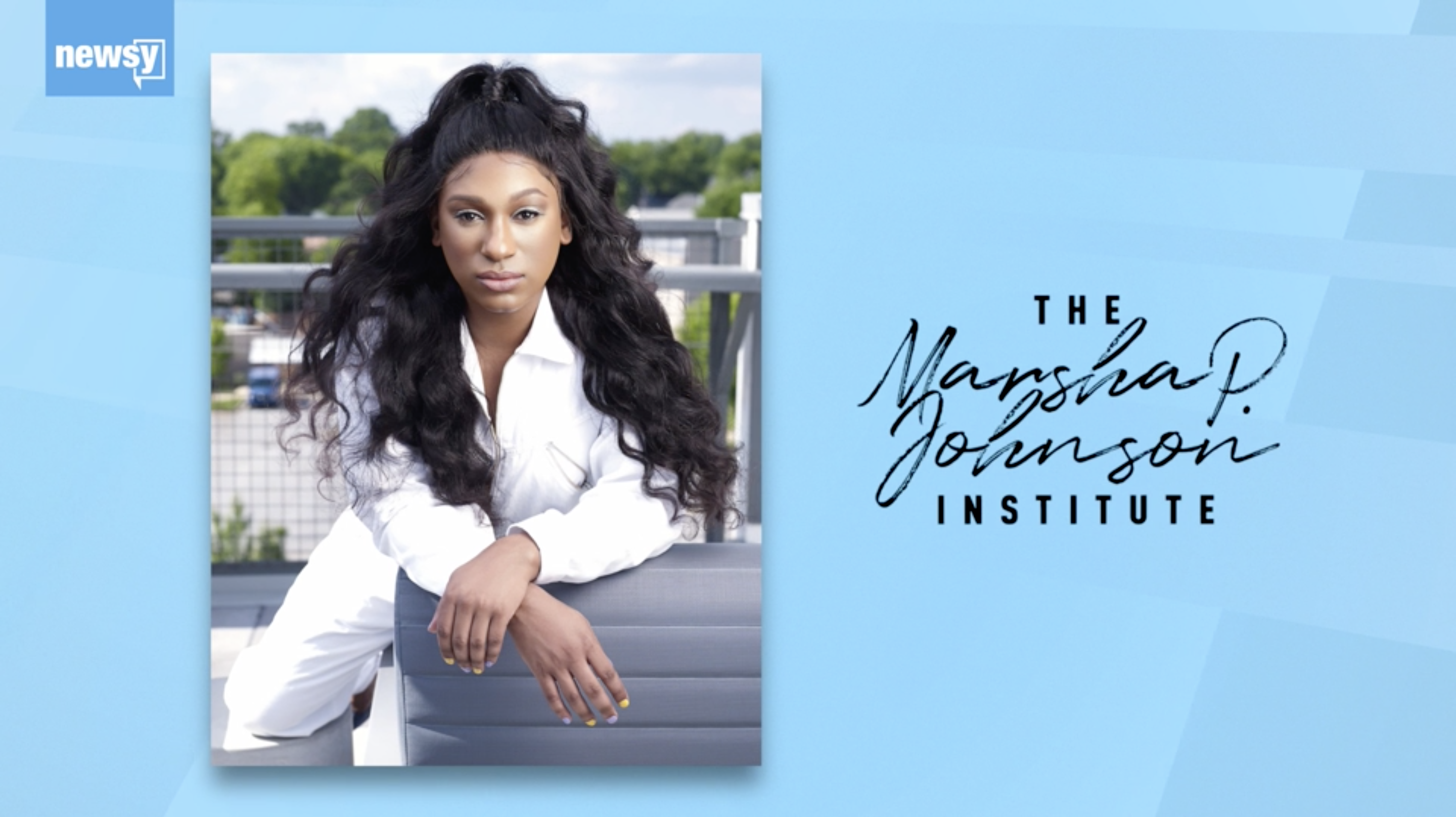As seen on FEMINIST, Written By Aisha Becker-Burrowes.
Elle Moxley founded and serves as the Executive Director of The Marsha P. Johnson Institute, an organization committed to protecting and defending the rights of Black Trans people. She has led campaigns including the #SayHerName National Day of Action and the first-ever National Day of Action for BLACK Trans Women in 2015. Moxley and FEMINIST co-founder Aisha Becker-Burrowes discuss the legacy of Marsha P. Johnson, the importance of celebrating Black Trans joy, and how intersectional feminism requires us to center and protect Black Trans women.
Aisha: The Marsha P. Johnson Institute was founded as a response to the murders of Black trans women and femmes and their subsequent exclusion from social justice movements. And so to you, I’d love to know what is Marsha P. Johnson’s legacy and where do you see the most critical aspects of her life’s work resonating most with the work you are doing?
Elle: Yeah. Marsha P. Johnson was just one of the most important advocates of our lifetime, you know, being someone who was affected by homelessness and the HIV epidemic. Just so many different things to draw upon for her voice and her advocacy and her outspokenness. She’s been a critical model of activism and advocacy for so many of us who really found ourselves situated in the middle of the most transformative movements of all time and so Marsha’s legacy is really the activists and the trans women who have been amplified and exhausted and who have created our own monuments for ourselves and each other through our work, whether it’s our advocacy and our activism or our stardom and artistry. We really are the results of the lives that were lived before us. And Marsha is certainly one of those models and one of those stars in the sky that we’ve all been able to look to or call upon in some form or fashion as we mapped out and carved out our own journey toward still being alive. Marsha’s legacy is that no matter what happened to her in that river, Black trans people, Black trans femmes, Black trans women are still alive, and our movement is still very much so here.
Aisha: I love that. When you talk about the movement still being here that leads me to my next question which is just what does it look like to protect and defend the human rights of Black transgender people, transgender femmes and transgender women?
Elle: Yeah, it looks like really making conscious and direct choices that prioritize Black transgender people in our consideration of humanity. You know, it’s not enough to just consider yourself. I was always raised and taught to consider those who have less than me, or who might not even be imagined as being fully humanized in the human experience. And so, as we think about human rights and we think about the rights of those who belong to a particular binary, it’s so important to understand that the binary is expansive as it relates to trans people and as it relates to trans women. And as an expansion of the binary, it is an invitation to really expand our own consideration around ourselves and who we can be, versus who the world wants us to be. And so I think that’s the opportunity that exists when trans people and trans people who are Black are prioritized in the laws and policies, and who we are willing to fight for and who we are willing to protect, everything shifts and changes in terms of what becomes equitable. But, you know, more than equity, I think accessibility is the thing that happens when we really prioritize our decision making. We are at a critical stage where we have to make the Black transgender community a priority.
Aisha: I think that’s so important. And you know, you’re talking about how the binary is expansive and an invitation to really see the opportunity that exists when we prioritize Black trans people. It’s just really important to inspire action – especially right now. And so the pages of the zine are really reflecting on what it means to be an intersectional feminist and intersectional feminist today in practice. And so my question to you is what does intersectional feminism in practice look like? And how do we ensure that people, particularly feminists understand that their liberation is bound up in queer and trans liberation?
Elle: Yeah, well, I think one of the things that’s really critical around feminism is that there’s an opportunity for white women to relinquish their power, and to also relinquish comfort… I think we’re at a moment where the comfort of our advocacy must shift because the conditions are uncomfortable for those who are outside of the majority. And so, in order to have feminism that is intersectional in its approach, it must be able to assess the class division and the subcategory that feminists find themselves in, you know– feminism, Black feminism and then you have humanists.
Aisha: Yeah, such a spectrum.
Elle: I recall a conversation I had with one of my mentors, Miss Major Griffin-Gracy, because I was very confused about what I was. I didn’t know if I was a feminist or if I was a Black feminist. And you know, she called me to the carpet in a way that I’m forever grateful for– around why I felt the need to have an allegiance to a thing that did not have an allegiance to me. And so I think there’s a moment where– an election happened.
[Laugher]
Aisha: Mhmm.
Elle: And we saw the results of that election, and then we saw the results of an insurrection, and so seeing efforts happening to really repeal not only laws and policies, but of the very movement that created the space first to be outraged by our conditions. And so I do think intersectional feminism is not only aware of class, race and gender but it is also aware of the repealing of our right to organize and our right to continue to be loud and outspoken and action oriented as it relates to disrupting the state. And as it relates to disrupting those who are not actually interested in seeing Black trans people survive pandemics, and state surveillance, and all of the things that displace Black trans people in our society.
Aisha: I’m actually really excited that you’re touching on so much of that, because I think so many conversations that I’ve been having particularly with Black femmes is just the sort of feeling of exclusion around feminism, right? And so…. I think my question for you is actually whether or not you would say your feminism is evolving, or rather your relationship to feminism is evolving?
Elle: You know, I think for me, I am always Black woman centered. Black trans women specifically centered. Black femme centered, and so that for me is maybe where the evolvement doesn’t occur. I’m not actually interested in evolving to include white women because I think great danger exists with the inclusion of white women. There is always a need for radical movements to normalize themselves in order to find peace so that they can sustain. And we’ve seen this historically throughout movements. You know, even in the LGBT movement, the reason why we have the very large, very well endowed…
[Laughter]
Elle: …No pun intended…organizations of today is because there was a moment where they historically got to say that we want to be separate from those freaks. We want to be separate from those weirdos, those leather wearing, fighting, carrying bricks in their purses, we don’t want to be looked at as being violent or other in society. And so I think that feminists are actually in this moment where women– cisgender white women, rich white women– want to be as normal in their minds as possible. And so, there is a need to other transgender people. There is a need to other Black transgender people, in ways that white people don’t even consider. So to answer your question, I don’t know if I’m evolving.
[Laughter]
Elle: I don’t think that’s a desire. I think that mine always is to evolve for the betterment of Black people and specifically Black transgender people. And even more specifically Black transgender women. I will say the line that I hold is that my mama is a Black woman. The women that I love and come from and who I wanted to be like are Black women. So I have never held space to consider white women as a model for my feminism, or for my hope.
Aisha: Mhmm.
Elle: I think there’s a fear distinction for me that I am very mindful of, but I am not incapable of understanding and relating to someone’s humanity. And so I think that is where if there is evolvement, it is there, that I am a human [laughs] and I’m capable of upholding that I do believe women are the way to the future and I would be okay if the world only had women in it.
[Both laugh]
Elle: Which I’m sure some may or may not find fault with, but that is just my belief and my personal opinion on the world that I would like to see. I have a late dear friend, Miss Danisha Gabriel who I always joked with, I’m not sure what the future of the world looks like, but I would be okay if it was just a world where cisgender and transgender women were. Now I’m not sure how all of our needs would be met based upon the full spectrum of sexuality.
[laughter]
Elle: But, I am very clear that it might be a peaceful world. I do think that we must satisfy our differences and if we don’t figure that out with the majority of those who have the power relinquishing [power], we’ll continue to have the same results that we have whether we’re feminists or not. So when you say you are a thing you really must mean that thing, you know? And so that’s why I hold space that one day I may evolve into being a self-proclaimed feminist but I would need to see different results from those who hold the power around the word in order to feel like it belongs to me.
Aisha: Yeah, I think that’s powerful because so much of what you’re actually doing, or what I’m hearing is that you’re sort of envisioning a different world, right? But it’s a powerful practice to really do that work of envisioning. And so, I’m actually curious– how can our audience or the folks that are reading your words in our zine help drive action in your movement, but also in this radical world that you might envision?
Elle: Yeah. I think that’s something that I’ve just been really exploring, you know? And let me also just be very clear. These are real-time thoughts. [Laughs] These are real-time considerations, and so I don’t know if they are right, but they are present for me as I think about intersectional feminism and as I think about what I personally need to be free.
Aisha: Yeah.
Elle: But I think collectively we’re at a point where violence is continuing to be a thing that is wreaking havoc in all of our lives. Obviously gun violence is really beyond our control, unfortunately. I think there’s been great efforts to try to move policy makers to shift their stance. So in terms of the actions, I think we always come to the action of “give money,” and I think that’s great. I think giving money is wonderful to support causes because we do need to sustain organizations. Even right now as you know we’re conducting this interview the Proud Boys are planning to protest drag queens and shows where trans women have found safety and sustainability and cultural educational pieces. So in terms of the action, there’s many that people could take. [Laughs] It’s just a matter of what people really want to do.
Aisha: [Laughs] Yep.
Elle: You know, I think that’s my question. Do people really want to save lives besides their own?… I have found comfort in being the executive director of an organization. I have a salary. But I don’t necessarily have the security that I need when I walk out of my door. I still am a Black person, I still am a Black trans woman. And there aren’t 20 feminists who are lining up at my door to say, we’re gonna keep you safe.
Aisha: Mhm.
Elle: So what actions are people willing to take? It’s more of a question for me, than I have answers for.
Aisha: Yeah.
Elle: Yeah. So I think that’s how we always end up right back into the space of like– give money.
[Both laugh]
Aisha: Listen, sometimes you gotta put money where your mouth is, right?
Elle: And I mean you got to continue to do that over and over and over, especially if you do not have any other solutions to offer those who do not have the resources or the ability to hide, you know? And that’s really what we’re talking about in society… when we talk about the trans community, specifically– can you hide in this society or not? And depending upon who you are, you know, hiding is just not possible. So I do think that we have to create more sustainability for the individuals and the organizations that are doing the work to protect feminist ideas, and feminist thoughts, and future world-building where we do have expansive communities that are not just related to two genders or one gender. But until we’re able to sustain those efforts and to really support those leaders and their ideas, I think there is great risk and jeopardy at hand. And we’ve seen this across the different large movements, whether it was the women’s march or Black Lives Matter, those movements have been either upended, suspended, or interrupted due to lack of strategy. So yeah, I think yes, give money.
Aisha: Yeah.
Elle: But also, as always, be willing to put your body on the line, but also really, really shift focus to make sure that efforts around violence are centralized in the organizing effort, you know? And it’s not to say, like, hey white women, go start anti-violence organizations. We have enough of those. I’ll just say that. [Laughs]
Aisha: Yeah, I mean–
Elle: I’m going on a tangent here! My apologies! [Both laugh]
Aisha: We love— I love tangents. I’m a tangent girl, so I get it.
Elle: Following no script, forgive me.
Aisha: Well, and I mean, in the sort of free flow of thought, there’s so much that you’re touching on that I think is really crucial. One of the things that you talked about is just putting your body on the line, right? And so, in a lot of ways you’re speaking about violence and about safety. I’m curious, how do you work to actualize the freedom, joy and safety of Black trans people? And, how can we also be intentional about finding safety and centering, and celebrating Black trans joy?
Elle: Yeah. You know for us it’s really just been about creating some spaces that are just for us. That are exclusive to Black people being able to see each other.
Aisha: Mm-hmm.
Elle: Black trans women, actually being able to see each other without it being just one of us in the room. You know, for so long, it’s been a model of, “Okay, well, we don’t know where Black trans women are,” or, “Oh, I know this one person,” and those are the people who get invited or uplifted and celebrated. You know, we don’t always get the space to celebrate and to experience joy. So that’s been a part of the Marsha P. Johnson Institute’s work, is really how can we protect and defend the human rights of Black transgender people in the United States by creating cultural moments that bring us joy. When I founded the Marsha P. Johnson Institute the question for me was like, we do need policies, we do need laws, we do need to organize, but as we started moving through the work, you know, we realized our work was so much more than just creating a memorial for dead Black transgender women and people. That we needed to do more than honor the lives of those who have been taken but to also honor the lives of those who have been living. And so joy really became a focal point for us. How can we create joy, what cultural contributions need to be made.
Aisha: Mmm.
Elle: And so for us it’s really just been about creating joy and really challenging the non-profit sector, the philanthropic sector to really think about joy as a measure of success as opposed to lobbying and laws. Not to say that that doesn’t need to happen because we truly believe that it does. But part of how we are actualizing freedom and joy is really creating safe inclusive spaces to celebrate and center Black trans women, but also you know Black trans people.
Aisha: This kind of leads me to my last and final question, which is something that I have been meditating on myself as well. So I will preface it with that, but what is giving you the most freedom and joy right now?
Elle: Oh man. [pauses]
Aisha: I know, I feel like that’s probably the hardest question, to be honest. [laughs]
Elle: Well, it’s hard because now I’m, like, in such deep thought about all the other questions. [laughs] Which I’m so grateful for! What is giving me joy right now? Well, always music. I think… yeah, the arts, music, culture. The Marsha P. Johnson Institute, Starship Artist Fellowship, you know? The Hair Tales, you know, these are the things that are bringing me so much joy, because despite everything that’s happening in the world, it is a reminder that we do still have these things. That we still have something that hasn’t been taken away. And so those things are giving me life as I am mourning life being taken. So yeah, I’m grateful for the music and grateful for the art.
Aisha: Is there a type of music that you love most or an artist that you play when you want to feel the most joy?
Elle: Oh, always. Right now the Holy Grail is Jasmine Sullivan and Beyonce. I mean, they are– what they’re doing is what the future sounds like. You know? They are really in their bags and I’m grateful that they are. [laughs] But you know, even just the work of Mickalene Thomas. I saw Mickalene just did a wonderful picture of Tracy Norman, Africa, that was so gorgeous. So yeah, it’s always, always women and femmes that I think bring me so much joy and inspiration and– opportunity to see into the future. Always R&B, always gospel. Always Beyonce, always Jasmine Sullivan.
Aisha: I love that. Well, I wish we could just keep going. I feel like I could ask a million and one questions because this has been really incredible and I’m really excited to share it for sure.
Elle: I know, and God bless your audience. I know everything I say always sounds so critical and scary because, honestly, it sounds critical and scary to me. That’s something I’ve been reflecting on lately —
Aisha: Hmm. Yeah.
Elle: — Is that my thoughts sometimes are critical and scary because they’re big thoughts, big ideas, big concepts that do situate us differently but I recognize that, you know, the thoughts really lead to the opportunities. And so I hope that FEMINIST’s followers and all of the folks who look to FEMINIST for guidance or inspiration, I hope that they can find the silver lining in what might be scary and critical. Because Lord knows I’m trying to find it every day, as I find and consider my own place in society, and in the world.
Aisha: Aww. Well thank you, and thank you for your time and your work and your words – everything.
Elle: I’m so grateful for your work, and just excited to see the zine and I’m hoping, always, that it’s impactful in a way that just betters the world for all of us. But most importantly, for those who the world is already hard to be in.


